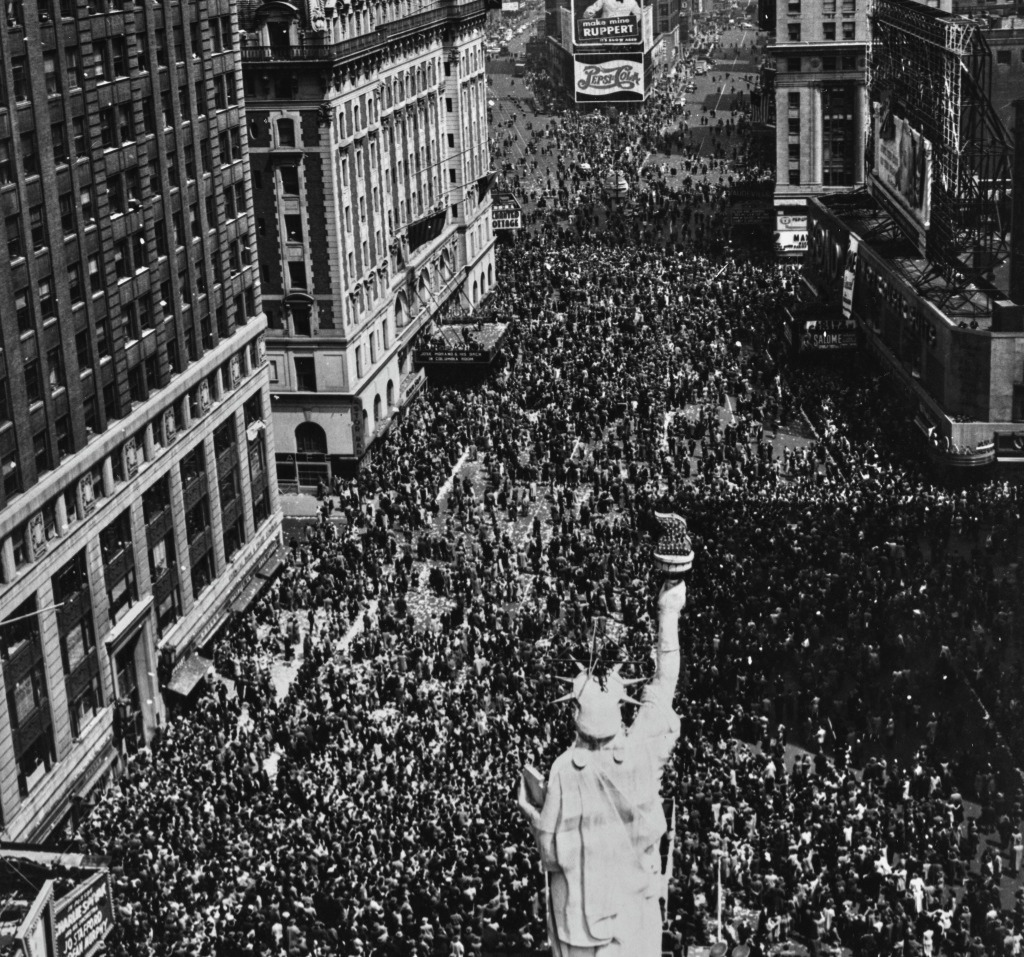
I was just a young boy when World War II ended, but I can still remember the enormous burst of elation in my Brooklyn neighborhood when it was announced on May 8, 1945 that Germany had surrendered. We knew that Imperial Japan was still a tough and dangerous adversary, but no one knew that three months and two atomic bombs later, the war would be brought to an immediate end.
As we approach the 80th anniversary of the conclusion of World War II, we are morally compelled to reflect on a seminal conflict that took over 70 million lives. We need to memorialize that enormous loss while appreciating that it reshaped the global order then, and continues to impact us today and far into the future.
President Donald J. Trump is correct in stating that the end of this conflict is so important it deserves to be observed by this nation every year.
His comments recognize the sad reality that the final frontline witnesses to this war are departing, transforming our relationship with this historical period from one of personal recollections to the documents written by historians. This irreparable loss requires us to safeguard those first-person stories and, equally important, to impart the war's lessons to a new generation of Americans, many of whom remain sadly ignorant of even the most basic facts about World War II.
While the focus has traditionally been viewed through the experiences of Europeans and Americans, we need to appreciate that the war impacted people across Northern Africa, Asia and the Pacific. It created a United Nations organization that is still struggling to be relevant and effective as an honest peacekeeping force. Postwar, the United States assumed the role of economic global superpower, a trust it continues to this day.
As I remember the Brooklyn celebrations of Victory in Europe (VE Day), some might say, "Why continue to commemorate a conflict that should now be consigned to the bookshelf?" Because it reminds our nation of the sacrifices required to defend our freedoms and how missteps, errors of judgment, and national unpreparedness can lead to catastrophe.
It is also revealed the depth to which "civilized" nations can sink, as evidenced by the Holocaust, when Nazi Germany engaged in a systematic campaign to eradicate the entire Jewish people through industrialized murder. World War II also revealed countless acts of heroism by ordinary individuals who risked their lives to save others.
As this conflict transforms from living memory into history, each one of us bears responsibility for determining how its lessons will be preserved and presented to future generations. The Museum of American Armor on Long Island, for instance, achieves this goal through educational immersion programs that reveal to visitors the heroes within their own families. It is but one example of how to keep alive our nation's sacrifice in the defense of freedom.
By observing this date, we honor those who defeated a darkness that can still be found in our worst nightmares. That generation's sacrifices can never be forgotten, nor their ultimate gift of freedom repaid. Let us pause this month and pay homage to the events and people of long ago and vow to never forget.
Lawrence Kadish serves on the Board of Governors of Gatestone Institute.


